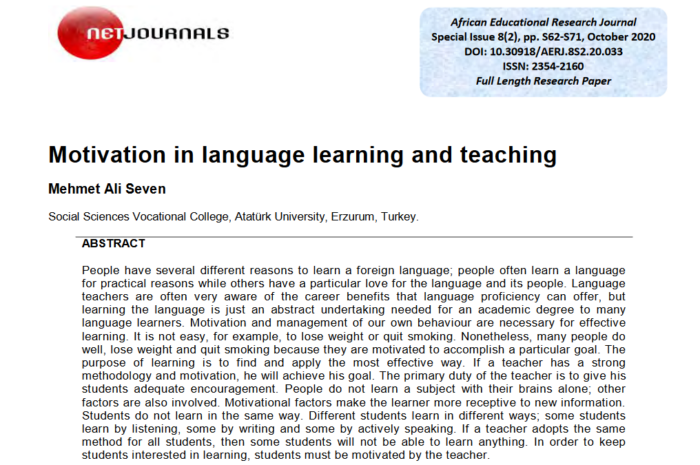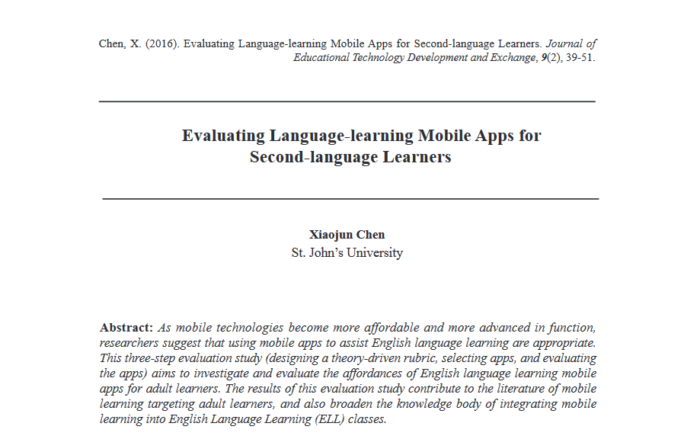How to Learn a Language Effectively According to the Research…
Read other articles:
Back to posts
Table of Contents
- 1 The importance of self-motivation
- 2 You can learn a language effectively at any age
- 3 The importance of short-term memory
- 4 Pressure situations may hamper language learning
- 5 Video is an effective way to learn a language
- 6 Language-learning apps can only take you so far
- 7 Boost fluency with a proven language-learning method…

There’s no single proven way to learn a foreign language — but many studies have been conducted to suggest what’s effective and what’s not with second language acquisition.
Naturally, people want “proof”. Nobody likes to waste time going down blind allies with their learning. But conclusive evidence and definitive solutions are hard to come by when we trawl through the research — learners are not all “wired” the same way and lots of healthy debate exists about the most effective language learning methods
So, we’ve compiled some of the most important findings from the language learning studies to help aspiring language students understand what the “experts” say. This might help you tweak your learning methods to more effectively target native speaker level — and foreign language teachers might also take the findings on board to adapt their teaching methods.
The importance of self-motivation

Motivation is a good starting point. Without it, we get very little accomplished in life.
This Turkish study from 2020 says that “motivation and management of our own behaviour are necessary for effective learning”. It suggests that the key questions we need to ask about motivation are:
- What energizes human behaviour?
- What directs or channels such behaviour?
- How is this behavior maintained or sustained?
When learning a foreign language, the teacher can help boost motivation — especially in school and classroom situations. Learners are more motivated with teachers they “connect” well with. But, for most language learners reading this, self-motivation plays a critical role in how far you will get with your learning.
Self-motivation is especially important if you have limited access to a language teacher. Those who push themselves to learn the language for a practical reason (such as for work, study or social reasons) may be more motivated to go further with the language than someone just casually learning out of a general love of language learning.
The great news is that self-motivated students have access to a wide variety of resources to help them learn — even without a language teacher. From polyglot groups, online language exchanges and language-learning apps to video-learning, AI-based browser extensions and more, you can learn a language from native speakers very easily with the available technology — if you’re self-motivated.
You can learn a language effectively at any age

Contrary to some popular misconceptions, the human brain has an amazing capacity for learning throughout its (hopefully) long life. You can learn a language at any stage of life even after your brain loses its sponge-like capacity when you were a kid.
This European study found that late-onset learners outperformed those with early language instruction on a variety of language-learning skills. It concludes that “age of onset is not a strong determinant of instructed foreign language learners’ achievement”.
Unsurprisingly, perhaps, this is attributed to motivational factors, which brings us back to the previous point. Mature, highly motivated learners can outperform younger brains that may be relatively unmotivated to learn a language (though they naturally absorb information from the environment).
The importance of short-term memory

Polyglots are multilingual people who can speak or use several different languages. We all know such people — and they have been the subject of several language studies to find out why they’re so adept at learning languages. What’s their secret?
In this 1995 study, both polyglot and non-polyglot Italian subjects were given tests assessing verbal (phonological) and visuospatial short-term and long-term memory, general intelligence and vocabulary knowledge in their native language. The two groups were found to have similar general intelligence levels but the polyglots were superior in verbal short-term memory tests and in the ability to acquire new (Russian) words.
Surrounding yourself with people who are very good at mastering languages can give your learning a boost. That’s why it’s a great strategy to connect with other language learners online.
Pressure situations may hamper language learning

One important debate in language teaching circles is whether putting students “on the spot” and under pressure in classroom situations aids or hinders learning.
While no tests have been done specifically on language students, this 2021 study found that “stress can increase children’s attention and learning capacities in some circumstances but hinder them in others.”
Again, there are no definitive conclusions or “one size fits all” approaches suitable for language teachers when it comes to managing stress responses in learners. Some confident and extrovert learners thrive on “risk” and being put on the spot in classroom situations; other more introverted learners may shrink away.
The study concludes that “some stress, manifested in changes to arousal and attention, is required for learning. Too much stress or stress at the wrong time may inhibit learning.” The authors also point to the need for “raising teachers’ awareness of pupils’ differing stress responses”.
Stephen Krashen, one of the leading voices in second language acquisition, asserted that people learn best in low-anxiety environments. For self-motivated students especially, this again points to acquiring a language outside of formal classroom situations using the available technology, learning at one’s own pace and without the permanent need for a language teacher.
Monitoring, review, feedback and error correction are also generally considered vital components of language learning but Krashen’s research suggests that learners can achieve a great deal outside of the formal teacher-student environments.
Video is an effective way to learn a language

As self-directed language learning becomes more common through various online means, video is one of the mediums that has proven most effective for language learners who aspire to a high level (near-native speaker level) when learning a foreign language.
Krashen stressed the importance of comprehensible input and compelling (not just interesting) input when learning a language. He theorized that if the input is compelling, people will learn whether they intend to or not.
Video can help with these elements of language learning. It is consistently cited as one of the most engaging forms of content for learners.
This paper from 2019 looked closely at the role of video in language learning and makes the following observations:
“It is well established that input plays a major role in the second language acquisition process. Audio-visual input such as television (TV) and video can be considered a particularly rich source of input. It not only exposes learners to authentic language use but the combination of different input modes such as imagery and audio may also stimulate various aspects of second language learning such as comprehension or vocabulary.”
“The potential of video for second language learning is further highlighted by studies on the role of out-of-class exposure for language learning.”
The same paper refers to studies on captioned video, which “revealed that watching video with captions may boost comprehension and vocabulary learning” and “stimulate bottom-up processes resulting in greater automatic word recognition. ”Read more about the main ways to use video for language learning.
Language-learning apps can only take you so far

The language learning app market is expected to reach almost USD 8 billion by 2027. Apps are being pushed as the latest, greatest way to learn a language. Many are free (at least at first) and most language learners will try at least one app as they experiment with language learning methods.
However, research out of New York suggests that apps like Duolingo, Mondly, Rosetta Stone and Memrise can only take you so far with learning a language.
The study found that “there is no single language-learning app that could provide a one-size-fits-all solution to meet adult learners’ language-learning needs.” This might be largely because most apps are based around the intense memorization of vocabulary (“skill and drill” method), according to other research out of Columbia University.
However, the New York study does recognize that “learning apps provide multiple channels and modalities for adult learners to practice language skills”. The author suggests that language learning apps are integrated into teaching methods to enhance language skills.
Learning a language and communicating effectively in it is essentially a social endeavor that demands some interaction with native speakers. While it may be challenging to do that without a native-speaking language teacher or visiting a place where the language is spoken, there are plenty of ways to interact with (or receive exposure from) native speakers online — including through video.
Boost fluency with a proven language-learning method…
To speak a foreign language like a native takes considerable time, commitment and a helping hand. We can’t do much about the first two requirements but we can offer a helping hand as you struggle for greater fluency in your target language.
If you haven’t yet mastered your foreign language, video-based language learning can help.
The use of video is supported by the research and can help you immerse yourself in your target language with compelling content in a low-anxiety environment. Explore our AI-based tool to learn a language from YouTube videos by downloading our free Chrome extension here.
Read other articles:
Back to posts
